How Much Does a Painter and Decorator Earn?
The painting and decorating trade is an enormous part of the UK’s construction and home renovation industry, attracting thousands to the profession every year. Painters and decorators enhance the appearance of both residential and commercial properties through the application of paint, wallpaper and other finishing materials to walls and ceilings.
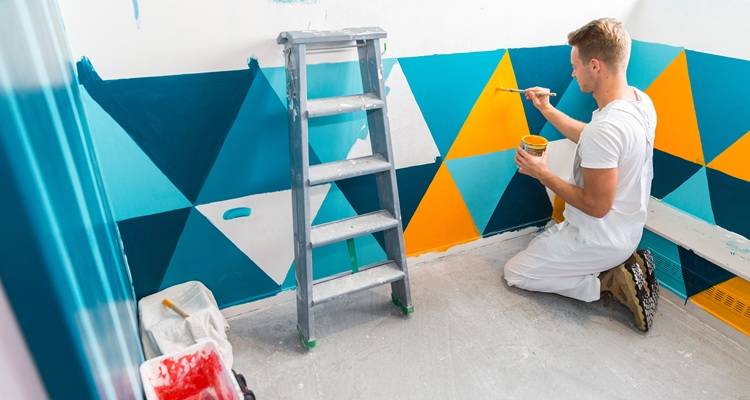
Their work not only provides aesthetic appeal but also has a key role to play in the longevity of properties, preventing long-term damage from environmental and natural factors.
Painting and decorating is certainly a trade that offers a degree of flexibility and versatility, with professionals working on projects ranging from small home improvements to large commercial developments.
Some professionals choose to seek employment in the trade with a company, while others prefer to operate as a sole trader or be self-employed. The latter allows professionals to set their own rates and working schedules and to build their own client lists.

The income of a painter and decorator will vary quite significantly based on a range of factors, including experience, location, qualifications, and types of projects. Throughout this article, we will delve deeper into the average painter and decorator salary in the UK, the factors that influence this figure, and the ways in which professionals can maximise earnings in the trade.
We will also compare painter and decorator wages to other similar trades to provide a wider perspective on financial opportunities in the construction sector.
Table of Contents
Average Earnings of Painters and Decorators
Salary vs Hourly
The average painter and decorator's salary in the UK will typically fall between £24,000 and £35,000 per year. However, as mentioned, this can fluctuate based on a number of factors, such as experience and location.
Entry-level painters and decorators who have around zero to two years of experience will earn around £18,000 to £22,000 per year. For those in the mid-career level, with three to seven years of experience, they can expect to earn between £25,000 and £30,0000 per year, while those with over eight years of experience can see their salaries rise to between £30,000 and £40,000 per year.

An important note here is that specialist painters and decorators, who are skilled in things like mural painting and heritage restoration, can earn well over £40,000 per year. However, these projects are far rarer than others, meaning that work can be a little more unpredictable.
When looking toward hourly rates, an employed painter and decorator earns in the region of £12 to £20 per hour, but self-employed tradespeople can charge higher rates, with their earnings ranging from £15 to £40 per hour. The exact amount a self-employed painter and decorator can earn depends on their level of expertise, reputation, and location.
Employed vs Self Employed Earnings
A key factor that influences a painter and decorator's wage is whether they are employed by a company or work for themselves. Those professionals who work for a company will benefit from things like a stable salary, pensions, and holiday pay, but they generally attract lower earnings than those professionals who work as sole traders.
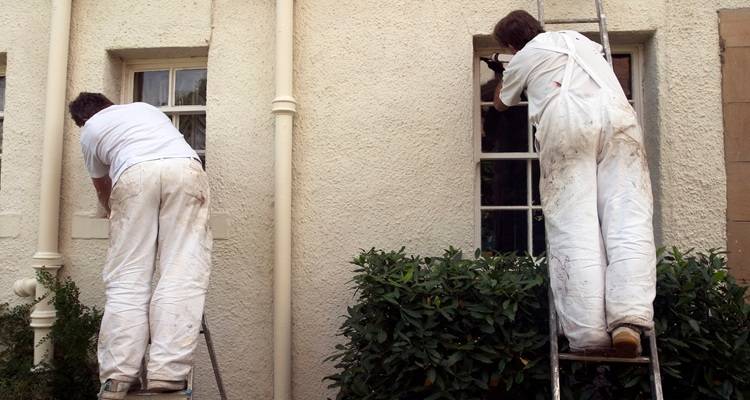
Self-employed painters and decorators give themselves the potential to earn substantially more. They have the ability to ascertain their own rates, decide which projects they want to take on, and build their own client base.
However, they also need to manage their own business expenses, such as tools, materials, insurance, and marketing. While this can be challenging, successful self-employed decorators can significantly increase their earnings by securing high-paying contracts and offering specialised services.
Factors Affecting Painter and Decorator Earnings
Experience & Qualifications
As with pretty much every trade, experience determines the hourly pay or salary of a painter and decorator. A newly qualified professional, as a general rule, will earn less than someone with several years of experience in the role.
Naturally, the more skilled and knowledgeable a decorator becomes about their job, the more valuable their work is as a result, and the higher their rates can be.
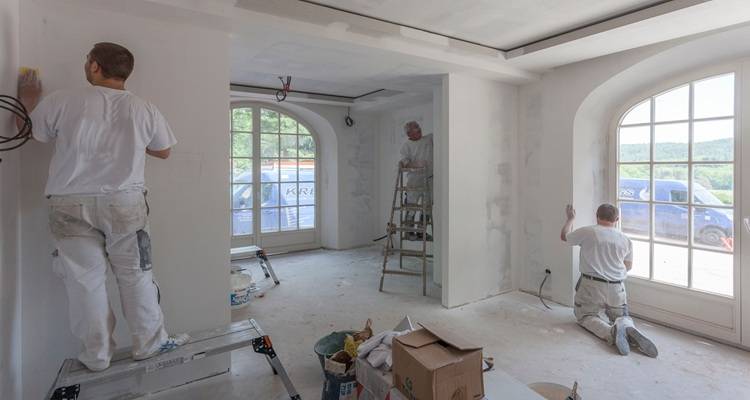
Qualifications can also play a key role in increasing an individual's earning potential. Many painters and decorators can opt to obtain an official qualification in Painting and Decorating in the form of a Level 2 or 3 NVQ (National Vocational Qualification).
This helps to demonstrate professionalism and skill level. Other valuable certifications include City & Guilds Advanced Decorating Certifications and health and safety qualifications, such as a CSCS card. Additionally, painters who specialise in advanced techniques like spray painting, wallpapering, and decorative finishes can charge premium rates for their expertise.
Location
Perhaps one of the key factors in determining the earnings or wage for a painter and decorator is their geographic location. Wages tend to creep higher in those areas where the cost of living is greater or where there is a larger demand for tradespeople.

For example, London is densely populated and has a high cost of living, driving up the cost for tradespeople. Here, painters and decorators often earn between £30,000 and £45,000 per year, whereas in the South East, salaries range from £28,000 to £40,000.
Similarly, the Midlands typically attracts salaries between £24,000 and £35,000, whereas in the North East and North West, earnings can be slightly lower, ranging from £20,000 to £30,000.
Type of Work
The type of work undertaken by a painter and decorator can impact their income, with domestic or residential decorating providing a very steady stream of jobs and clients, but at the lower end of the paying scale.

Commercial or industrial decorating, which typically includes projects for buildings like offices, hotels, and retailers, will attract higher wages but may also require additional certifications or skill levels. Specialist decorating work, such as mural painting, restoration, or bespoke finishes, commands the highest rates due to the high level of skill required.
Workload and Demand
Of course, the demand for painters and decorators will change throughout the year. Spring and summer periods do tend to be the busiest seasons, as property owners generally prefer to renovate their homes during warmer months.
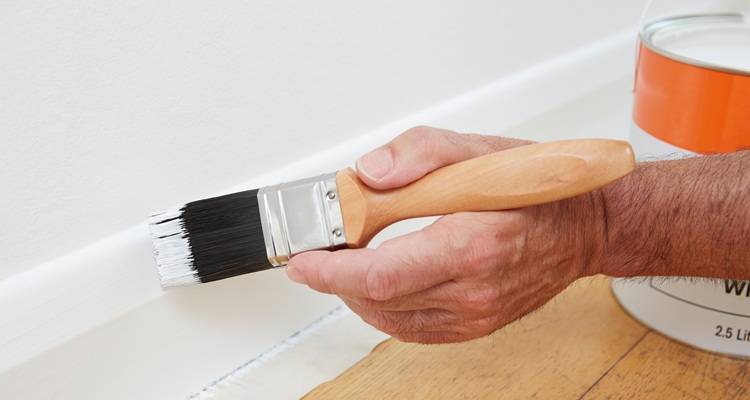
Contrastingly, in the winter months, there does tend to be a decline in general demand, particularly for exterior painting jobs. Painters and decorators can maintain a steady workflow of clients throughout the year by offering interior decorating services during slower months to ensure a more consistent income.
How to Increase Earnings as a Painter and Decorator
One of the most effective and successful ways to increase earnings as a painter and decorator is to invest in yourself through further education and training. By obtaining additional qualifications, such as an NVQs, City & Guilds, or specialist certifications in spray painting, wallpapering, or decorative finishes, professionals can stand out in the industry and ultimately charge higher rates for their services.
Professionals should also consider expanding their services to increase or supplement their income. Painters and decorators will typically expand into similar services, such as plastering or tiling, to be able to take on a wider range of projects and clients. This can be particularly beneficial for self-employed decorators who want to maximise their earning potential or for employed people who want to take on some extra evening or weekend work.
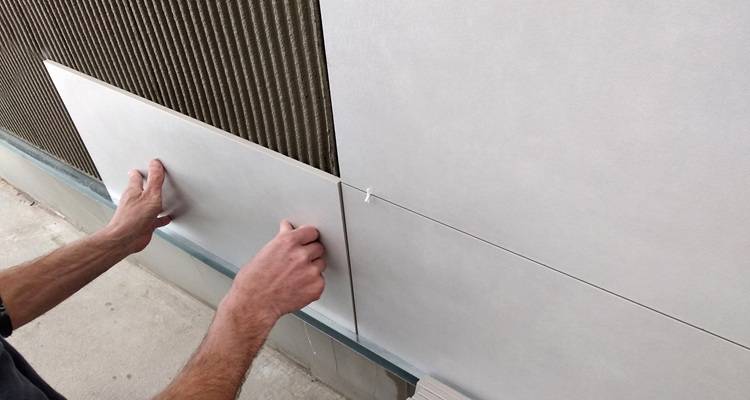
One essential element to working in the trade is to build a strong client base. Additionally, self-employed painters and decorators should invest in marketing efforts, such as creating a professional website, utilising social media, and encouraging word-of-mouth recommendations, as a strong reputation and positive customer reviews can help secure more lucrative projects.
Finally, taking on larger or commercial projects can lead to higher pay. While domestic painting jobs provide a steady income, commercial decorating contracts for offices, hotels, and retail spaces often offer significantly higher wages.
Comparing Painter and Decorator Wages to Other Trades
When you compare painting and decorating to other trades, the pay is certainly competitive, though there are some trades that do offer a higher wage. For example, plasterers earn between £26,000 and £40,000 per year, while carpenters can make anywhere from £28,000 to £45,000. Electricians generally tend to earn more, with salaries ranging from £30,000 to £50,000, and tilers make between £24,000 and £38,000.

While painting and decorating may not offer the highest wages in the construction industry, they provide a relatively low barrier to entry, flexible working options, and the potential for self-employment, which ultimately leads to higher earnings over time.
As we have covered in this article, the salary of a painter and decorator in the UK varies based on experience, location, and employment type. While entry-level decorators earn somewhat modest wages, experienced professionals, specialists, and self-employed individuals can achieve significantly higher earnings. By gaining qualifications, expanding services, and building a strong client base, painters and decorators can increase their income and enjoy a successful career in the trade.
FAQs
How much does a painter and decorator earn per hour in the UK?
Self-employed painters and decorators' hourly rate can be significantly higher since they set their own prices. Generally, self-employed decorators charge between £15 and £40 per hour, depending on their expertise and the complexity of the job, and those with specialist skills, such as spray painting or heritage work, can charge even higher rates.
Painters and decorators working in London and the South East tend to earn more due to the higher cost of living and increased demand for skilled tradespeople. Contrastingly, wages in the North of England, Scotland, and Wales may be slightly lower.
Is painting and decorating a good career choice in the UK?
While entry-level salaries certainly start toward the lower end, experienced painters and decorators can earn good salaries, and it doesn't take long to build the skill and experience level required for higher rates.
Self-employed professionals have the advantage of setting their own rates and choosing their projects, often making more than those employed by companies.
What qualifications do you need to become a painter and decorator?
Some employers may require a CSCS card to work on construction sites and ensure health and safety compliance.








